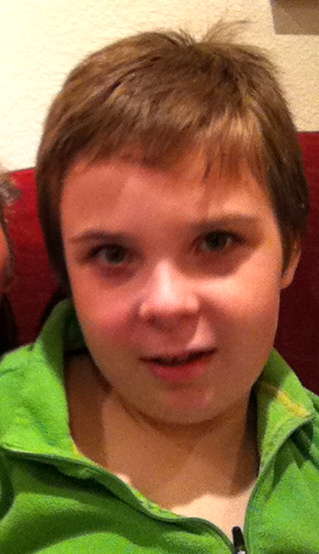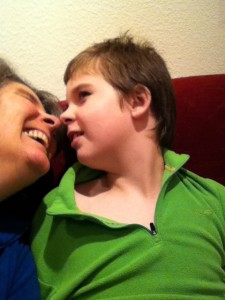 I used to think that the two worst words for a parent of a child with special needs to hear were...
I used to think that the two worst words for a parent of a child with special needs to hear were...
"Prior Authorization"
Lately, I have discovered a more loathsome word pairing.....
"Drug Shortage"
In the past 6 months, I have called and visited more pharmacies and doctor's offices than a drug rep from Pfizer.
I am the mother of a child diagnosed with severe ADHD.
I have searched the Internet, the neighborhood and the state for the last remaining handfuls of Ritalin.
Since ADHD medications are narcotics, Massachusetts law requires me to physically pick up a prescription each month from our pediatrician. Phoning or faxing prescriptions to the pharmacy is not allowed.
With all supplies of Ritalin on back order, only a few pharmacies have any in stock. Those who do have it available, have only a few dosage strengths left. As a result, I must first find a pharmacy that has meds available and then visit with our primary care doctor again so he can rewrite prescription after prescription for the "most available" dosage. I need to do this every month.
I am in his office so often, his staff is beginning to think I am a hypochondriac.
I have frequented so many pharmacies, my photo is on their list of potential drug abusers.
I feel like a crack addict.
But my efforts have been futile and it is my child who is suffering.
I am overwhelmingly aware that many folks do not recognize ADHD as a real disorder. Current dogma persuasively perpetuates the belief that ADHD is nothing more than a label used by lazy and delinquent parents to disguise what is just the end result of poor parenting.
Instead of providing my child with dangerous medications, all I really need to do is cut out sugar and dyes from his diet, add vitamins and fish oils, outlaw video games, employ stricter punishment tactics and my son would be miraculously cured.
It is surprising to me, how this distorted philosophy is so often regurgitated by those who do not have children diagnosed with this condition.
ADHD is a real disorder.
I have seen firsthand what it can do to a child.
It is not caused by parental failure or an inherent "badness" in a child.
It is caused by a brain that is not functioning properly.
It is inherited.
And it is indeed real.
 My son has struggled to be successful in school. His restless energy and lack of impulse control have effected his ability to maintain friendships and build long lasting relationships. He is judged, scorned, disciplined and outcast by the world.
My son has struggled to be successful in school. His restless energy and lack of impulse control have effected his ability to maintain friendships and build long lasting relationships. He is judged, scorned, disciplined and outcast by the world.
Students, teachers, administrators, and parents alike, often do not embrace Weston's unique personality. He is not valued. He is not understood. A steady stream of punishment and negative feedback has transformed my once happy and carefree spirit into a sullen and moody pre-teen who questions his worth in the world.
My son's meds have saved his life.
They have enabled him to learn, to succeed and to live happily in this world.
I have witnessed this successful transformation and the overwhelming positive results of what an appropriate medication treatment can do for a child who struggles from mental health issues.
Denying him treatment, is to me, nothing short of child abuse, no worse than a parent who denies their child treatment for cancer or diabetes.
And so, as his mother, I continue to search for answers.
Why are the medications that will help my son being withheld?
Ask the drug companies and they will tell you that in an effort to control illegal distribution of ADHD meds (to college students and the like) the Drug Enforcement Agency (DEA) sets a "quota" for distribution. Once the yearly quota is met, no more meds are distributed, regardless of public demand
 The DEA will tell you that they need to set these quotas to control the illegal distribution and misuse of ADHD medications. They blame drug companies for convincing physicians to unnecessarily prescribe these substances thereby inflating their markets and increasing their profits.
The DEA will tell you that they need to set these quotas to control the illegal distribution and misuse of ADHD medications. They blame drug companies for convincing physicians to unnecessarily prescribe these substances thereby inflating their markets and increasing their profits.
President Obama will tell you he has asked the FDA to look into it and has worked with Congress to sign legislation to prevent this issue.
Ask the FDA and they will tell you they do everything "within their legal authority" to prevent drug shortages.
ADHD experts like Dr Russell Barkley and Dr. Ed Hallowell will tell you that ADHD is actually under diagnosed in this country with many children and adults suffering from the effects of untreated illness.
They will tell you that currently there is no blood test or brain scan tool to use as a means of diagnosing this disorder. The only way to determine if a child (or adult) has ADHD is to treat them with medication. If medications work, the patient has ADHD. Predicting a yearly quota of just who and how many will seek treatment is an unrealistic expectation.
Does this all sound like madness to you?
Are parents of children diagnosed with ADHD and cramming college students really our biggest drug threat?
All these departments, companies, and federal agencies are talking, but no one is telling me anything.
In the meantime, my child has not received the medication he deserves to treat his illness.
How can this happen?
What would public outcry look like if supplies of insulin were withheld?
 And what do you suppose is going to happen once medications are available? The fear of stockpiling now becomes a reality.
And what do you suppose is going to happen once medications are available? The fear of stockpiling now becomes a reality.
I was told that all supplies would be back to normal by the first of the year.
It is now almost March, and I still cannot find the appropriate "prescribed" medication for my child.
I am beginning to consider using these "illegal" distribution channels, or perhaps a few college campuses?
Of course I can just see the headlines now.....
"Special Needs Mother Wanders Streets of Boston Looking for a Fix"
To read more about our family adventures, please visit us at www.onalifelessperfect.blogspot.com









 In the quiet stillness of the morning, you decided it was time to transition from the warmth of my womb to the world of wonder awaiting your arrival. As dawn broke, the sun rose over the hills spreading orange hues that lit up the violet sky and turned down the stars. Fifteen hours later, after the sun traversed the sky blazing the trail for the moon, your father and I held you in our arms.
In the quiet stillness of the morning, you decided it was time to transition from the warmth of my womb to the world of wonder awaiting your arrival. As dawn broke, the sun rose over the hills spreading orange hues that lit up the violet sky and turned down the stars. Fifteen hours later, after the sun traversed the sky blazing the trail for the moon, your father and I held you in our arms.
